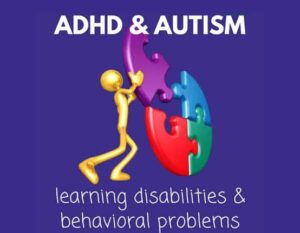Article Categories

Autism and Attention Deficit Hyperactive disorder in children
Autism and Attention Deficit Hyperactive disorder (ADHD) both are neurodevelopmental disorders which impact the same brain functions.

Sarcopenia
Sarcopenia has become exceedingly common among older people. Almost 10% of adults above 50 are affected by it. Sarcopenia is characterized by muscle loss, that can decrease both the quality of life, as well as life expectancy. However, the good news is that sarcopenia can be prevented and reversed in certain cases.

Constipation: Remedies and Diet
Constipation is irregular, infrequent or difficult passage of faeces. Constipation is most often defined as having a bowel movement less than 3 times per week. It is often associated with hard stools or problems passing stools. You may have pain while passing stools or may be unable to have a bowel movement after straining or pushing.

Ideas on preparing healthy and tasty school lunchbox
Nutrition plays a very important role in the growth and development of children; and since a considerable part of their waking hours is spent in schools, the importance of school lunchbox becomes enormously significant. Children should get at least one-third of their total calorie requirements from the food that they take in school, and therefore menu planning for the school lunchbox is something parents should be extremely mindful of.

“Seeds”: The Powerhouse of Nutrients
Seeds are small mighty kernels which are known to be super-nutritious. They are also known as a powerhouse of nutrients and can be consumed daily for a myriad list of health benefits. Seeds contain an ample amount of fibre, healthy monounsaturated fats, polyunsaturated fats, vitamins, minerals and antioxidants present in them, seeds are known to be extremely versatile and can be incorporated any way in any recipes.

All About Diarrhoea: Causes, Symptoms and Treatment
Diarrhoea is a condition during which a person passes loose or watery stool. Generally, diarrhoea may occur twice to thrice in a year and is considered normal, however, people with Irritable Bowel Syndrome (IBS) are more susceptible to develop diarrhoea more often.

4 common myths debunked!
With so much of nutrition advice out there, everyone seems to have an opinion on what to eat and what not to eat. People do become a victim in believeing the food myths and nutrition quacks which is being followed blindly since years as old wives tales.

Breastfeeding Nutrition – for healthy motherhood
A lactating mother requires extra food to secrete adequate quantity/ quality of milk and to safeguard her own health. The nutritional link between the mother and the child continues even after birth. Breast milk is the ideal food for infants. Breast milk provides all the energy and nutrients that the infant needs for the first months of life, and it continues.

Pregnancy Nutrition- for the future parents
There are few events in our life that rival the significance and the joy of childbirth. Nutrition during pregnancy plays an important role to give birth to a healthy child in future parenthood. Nutrition and lifestyle before and during pregnancy have shown long-term effects on the health of the child.

Superfoods – What makes them “Super”?
For starters, a Superfood is defined as “a nutrient-rich food considered to be especially valuable for health and well-being.” These Superfoods are not only high in micronutrients, but are also powerhouses of essential antioxidants, minerals and healthy fats which are all-important for your body in order to thrive.
